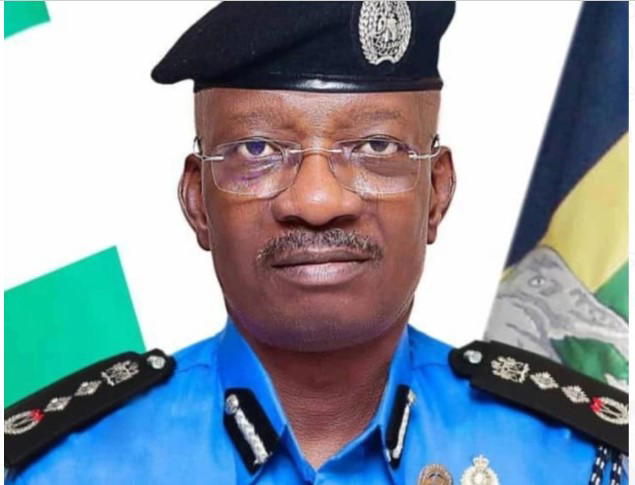Declare stealing of countries’ mineral resources international crime, Tinubu tells World leaders

President Bola Tinubu on Tuesday called on African leaders to unite, join forces and push for the recognition of mineral resources theft from the continent as an international crime on the global stage.
He stressed that his call became imperative because such acts have become grave threats to regional peace, stability and development, adding that illegal mining and mineral smuggling are obvious international crimes.
Nigeria’s leader stated this at ECOWAS Secretariat, Asokoro, Abuja when he declared the Annual General Meeting of the Network of National Anti-Corruption Institutions in West Africa (NACIWA) open.
Tinubu, who was represented by the Secretary to the Government of the Federation, George Akume, explained that such designation and proclamation would help affected countries to take drastic actions against the culprits.
Daily Trust reports that stakeholders in the security sector have attributed growing security challenges across the country with illegal mining activities going on particularly in Zamfara, Sokoto, Kebbi and some States in the Northeast.
The President’s call came amid rising concerns about illegal mining and mineral smuggling across West Africa, particularly in gold-rich countries such as Nigeria, Ghana, Burkina Faso and Mali.
Reports released by the Nigeria Extractive Industries Transparency Initiative (NEITI) had shown that billions of dollars worth of minerals leave the region each year through unregulated channels, depriving governments of crucial revenue.
Speaking during the general meeting, the President lamented that despite decades of independence, the region’s economic and political progress continued to be undermined by corruption and the looting of mineral resources.
According to him, the proceeds of such thefts do not only deprive citizens of development and benefits but also fund insecurity, the proliferation of small arms and light weapons, banditry and kidnapping across the region.
The President said, “West Africa’s post-independence economic and political trajectory is blighted by corruption, manifest in the theft and stashing of our commonwealth abroad by corrupt officials.
“Even now, illicit outflows remain an odious miasma. Stealing of mineral resources is on the rise in the region, fuelling proliferation of small arms and light weapons, and other violent crimes such as kidnapping and banditry.
“I believe that the time has come for us to designate resource theft, mining and stealing of minerals in the region as an international crime that threatens the stability of the region and galvanise the world against threats from stolen minerals from West Africa.”
He also urged NACIWA delegates to critically examine the extractive sector, financial intelligence sharing and anti-money laundering frameworks to strengthen accountability across West Africa.
“I urge you all, in your deliberations, to examine critically the regional anti-money laundering frameworks, financial intelligence sharing mechanism, and accountability in the extractive sector across the region for a more prosperous and secure future,” Tinubu added.
He further noted that no single country could win the battle against illicit financial flows, stressing that the challenge required a multi-state and multi-stakeholder platform to harmonise regional efforts against corruption and its manifestations.
Speaking on Nigeria’s anti-corruption strategy under his watch, Tinubu said his administration had prioritised tracing and recovery of stolen assets, introducing new legal frameworks for asset recovery and management.
He also commended the Economic and Financial Crimes Commission (EFCC) led by Ola Olukoyede for what he described as “its prolific” record in asset recovery, urging member countries to share lessons from such efforts.
The President maintained that his government was committed to using recovered funds as “instruments of social inclusion.”
He revealed that N100 billion recovered from crime proceeds had been injected into the Student Loan Scheme and Consumer Credit Scheme, describing both as legacy programmes aimed at improving access to education and easing financial pressure on citizens.
The President reaffirmed Nigeria’s commitment to ECOWAS and regional anti-corruption cooperation, stressing that a united approach was essential to ending illicit financial flows and advancing good governance.
Also speaking, the Minister of Justice and Attorney-General of the Federation, Lateef Fagbemi, urged West African nations to domesticate the ECOWAS Protocol on Corruption, saying this would ensure that corrupt officials find no safe haven within the subregion.
Fagbemi, a Senior Advocate of Nigeria, said, “Let us domesticate the ECOWAS Protocol on Corruption so that thieves find no hiding place. The child who says his mother will not sleep will also not sleep, so also the corrupt who disturb the peace of nations must not find rest across borders.”
The minister proposed the establishment of an ECOWAS Regional Task Force on Asset Recovery, to be supported by NACIWA, to coordinate investigations and intelligence sharing among member states.
Fagbemi also stressed the need to guarantee the independence and adequate funding of anti-corruption institutions, warning that underfunded agencies were vulnerable to compromise.
“The goat eats where it is tied. If we starve our institutions, they will be unable to resist corruption.”
Earlier, the Chairman of the EFCC, Ola Olukoyede, who also serves as President of NACIWA, said the fight against corruption in West Africa must be viewed within the broader context of political stability and social justice.
“Distinguished colleagues, we must acknowledge the evolving landscape in which our institutions operate. Political transitions, security concerns, and governance challenges across several member states underscore that our fight against corruption cannot be divorced from broader considerations of political stability, institutional integrity and social justice,” he said.













